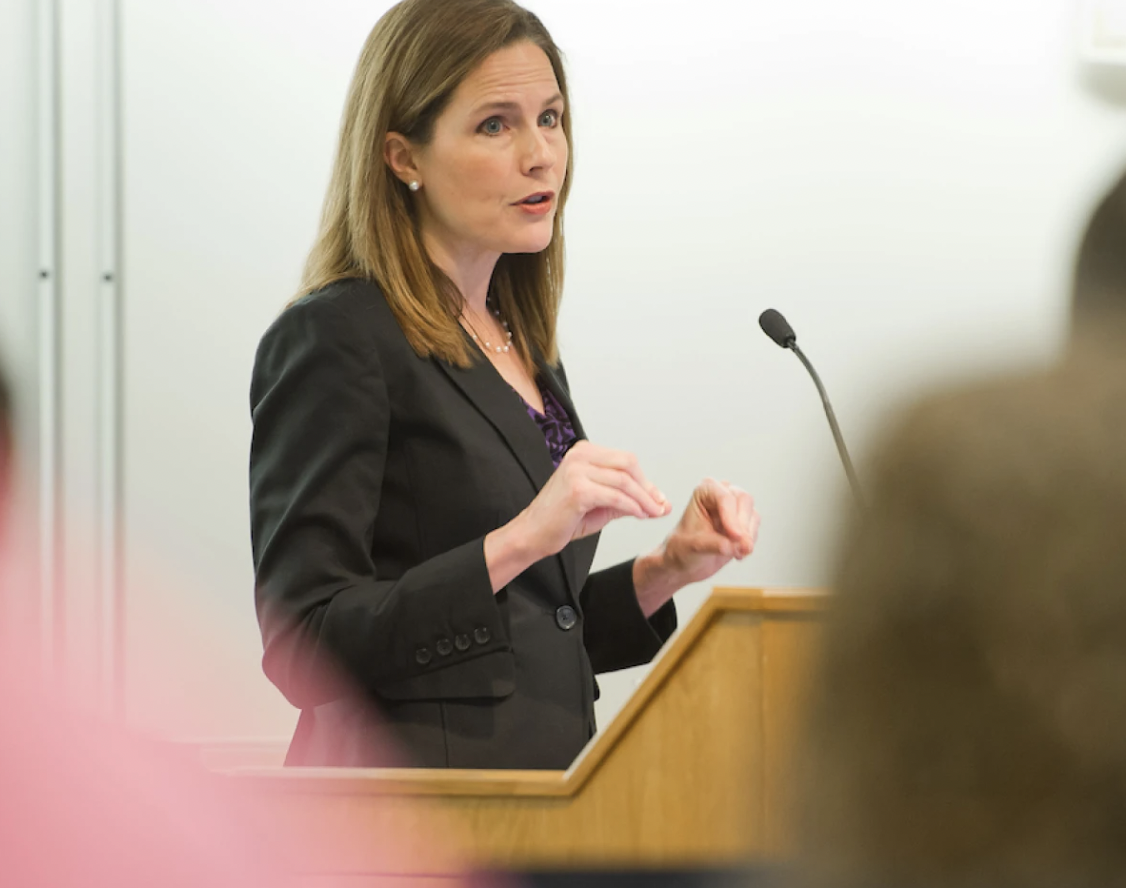Gorsuch and Barrett Thought Their Law School Teaching Jobs Were Conflicts Requiring Recusal. Why Don’t These Other Judges? – Fix the Court

When Justice Gorsuch was serving on the Tenth Circuit, he recused in five cases involving the University of Colorado during the time in which he was serving as an adjunct professor at the law school. This we can glean from a detailed document of his recusals that the Senate Judiciary Committee released at the time of his 2017 Supreme Court nomination.
Though Justice Barrett’s Seventh Circuit recusals were not made public, what was released was her “conflicts sheet,” i.e., the document she uploaded into the lower courts’ conflict-check software so that if one of those entities appeared in a Seventh Circuit proceeding, the software would automatically skip her (which counts as a recusal) and another non-conflicted judge would be assigned.
Barrett, a former full-time Notre Dame Law professor, continued teaching at ND Law during her three-year appeals courts stint, and both the law school and the university appear on her conflicts sheet.
Now compare that to a whole host of judges who are adjuncts at Ohio State’s Moritz College of Law: they have lengthy non-recusal records.
In case after case, judge after judge, there are barely any recusals to be found. (We found one, from Judge Algenon Marbley in 2015, though that occurred just eight months after he resigned from the OSU Board under a cloud, so there could have been other factors for that recusal.)
One E.D. Michigan judge with ties to Michigan Law heard a case involving the University of Michigan earlier this year. Per a law school spokesperson, Judge Judith Levy “remains in our stable of possible adjunct professors for future semesters,” though it’s been a few years since she taught a course there.
Her non-recusal decision stands in contrast to what Sixth Circuit Judge Ray Kethledge did in a famous 2012 en banc involving the state’s vote to ban race as a factor in college admission: he recused, per press reports, due to his Michigan Law teaching, which left the case an 8-7 victory in favor of using race as a factor, something that we believe Kethledge would not have supported had he not stepped aside.
In general, we believe judges’ recusal practices should be somewhat uniform – that two judges who have identical or equivalent financial arrangements and who have parties that are identical or equivalent appear in their courtroom will do the same thing when it comes to stepping aside (or not). In this regard, we back Gorsuch, Barrett and Kethledge.
To our chagrin, though, a three-judge panel on the Sixth Circuit wrote an opinion last year in which they held, in a case involving Ohio State where the presiding judge is on the OSU Law faculty, that recusal was “not required just because a judge serves as an adjunct professor at the law school of a party-university.”
In the opinion, the panel cited opinions from three “sister-circuits” who reached the same conclusion given similar facts.
They also cited a couple of government documents the contents of which have not been made public, namely, the Guide to Judiciary Policy, Vol. 2, Pt. B, “Ethics Advisory Opinions,” and Vol. 2, Ch. 3, “Compendium of Selected Opinions.”
Here is a letter sent today from Fix the Court to the Judicial Conference’s Codes of Conduct Committee asking that they make those documents public.
Our letter concludes: “Given the important role the public can play in surfacing and vetting potential conflicts, we believe all interested parties should have access to pertinent government-produced materials to assess the extent to which recusal in certain instances might be warranted. Transparency in this regard is a key factor in ensuring that justice is served and trust in the judicial branch is maintained.”
It’s clear to us that an unbiased and reasonable person who is aware of the relevant circumstances of a case captioned University of X v. Doe would expect a judge employed by the University of X Law School — and who, under federal law, may be earning up to $33,285 in that position — to step aside.
In spite of precedent from two judges now on the Supreme Court (three if you count Justice Jackson’s recusal in the Harvard affirmative action case, though that was for being on a board and not for teaching), several judges disagree.
The least they can do is show their work.
Related
A top recruiter says sports marketing roles are hot right…
Jobs are opening up in the sports industry as teams expand and money flows into the industry.Excel Search &
Public employees and the private job market: Where will fired…
Fired federal workers are looking at what their futures hold. One question that's come up: Can they find similar salaries and benefits in the private sector?
Mortgage and refinance rates today, March 8, 2025: Rates fall…
After two days of increases, mortgage rates are back down again today. According to Zillow, the average 30-year fixed rate has decreased by four basis points t
U.S. economy adds jobs as federal layoffs and rising unemployment…
Julia Coronado: I think it's too early to say that the U.S. is heading to a recession. Certainly, we have seen the U.S. just continue t










